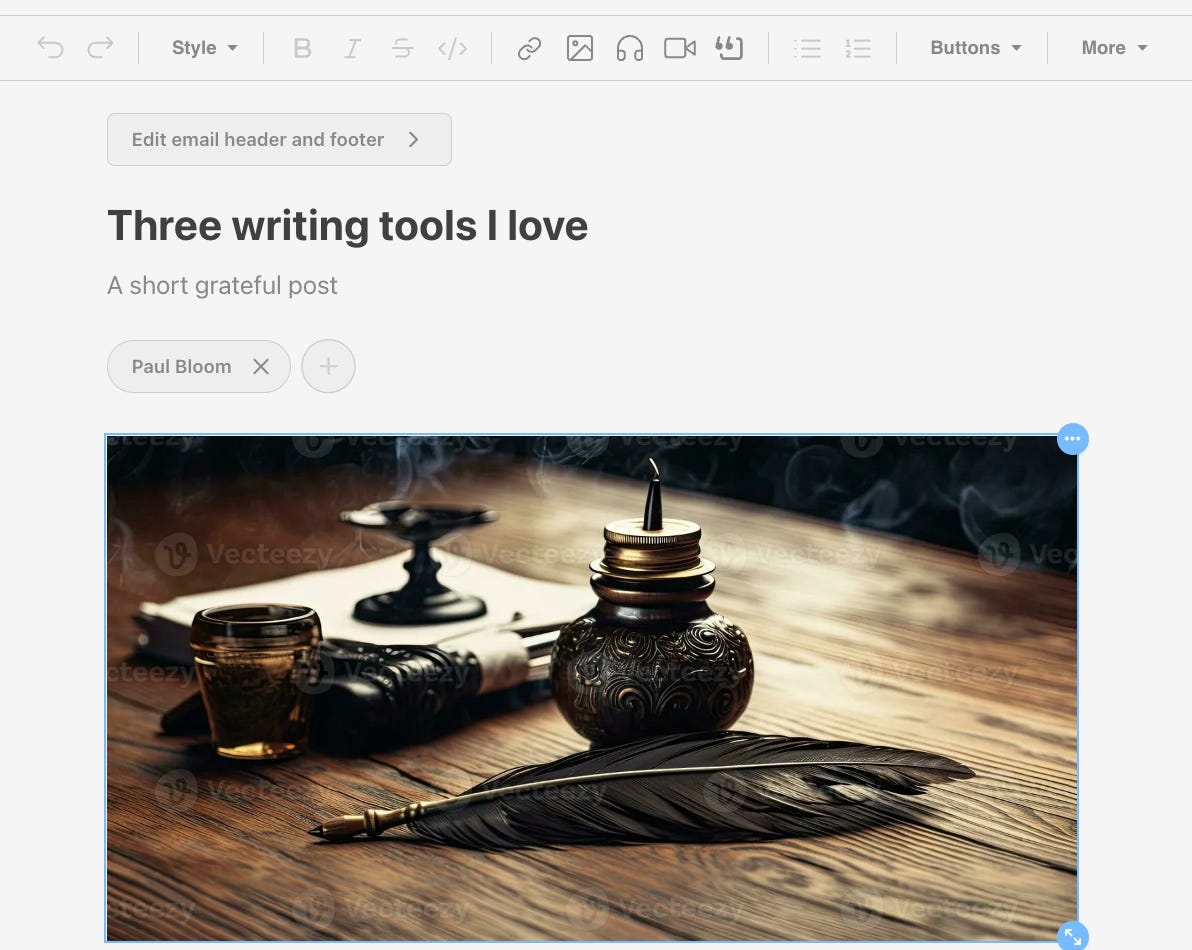Three writing tools I love
A short grateful post
I use this for projects that have many parts. Books, obviously, but sometimes long articles with many sections. I don’t take advantage of many of the features; I just like having the whole project in front of me, letting me easily move from one part to another. (I used to have dozens of Word files in a folder—much messier.) See below for an example from the last book I wrote. On the side are files corresponding to (a) the draft of each chapter and (b) below the draft, my notes for that chapter. (Like “RATIONAL ANIMAL” and “Rationality-notes”.) This example comes from late in the process; earlier versions were less orderly, and had files like “Hippocampus joke—where to put this?” or “Good William James stuff”. Scrivener is not free, but it’s worth it; I find it hard to imagine writing a book without it.
I just started using this a few weeks ago, but I’m pleased by how easy it is to use. None of the feature bloat of a program like Word; it just has everything I need. Very impressive. (And free.)
Small whiteboard
I’m easily distracted, and when ideas pop into my head, they can take me away from whatever I’m working on. With the whiteboard, I can write down a thought—often something I have to do later in the day or a paper that I should read— and keep working. I also use a sort of Pomodoro Technique when I work, and I use the whiteboard to keep track of how much time I’ve spent on writing and how much I’ve spent goofing around on Twitter. And it’s good for lists, simple figures, and so on—quicker and less distracting than opening up another file or application. This is all so useful that when I travel, I toss in the whiteboard, an eraser, and a couple of markers.
Also-ran: I’ve been using GPT-4 to proof my writing. Right now, it’s meh. It misses obvious errors and complains about (what I see as) perfectly good prose1. But it often catches a mistake, and every once in a while, it suggests something better than my original prose. So it doesn’t make the list, because I don’t love it, but it does deserve a shout-out.
For instance, when asked to proof this piece, it complained about “toss in the whiteboard, eraser, and a couple of markers.", writing: “The phrase "toss in" might be considered informal. Depending on the tone you're aiming for, a more formal phrase might be appropriate.” That’s dumb—the style of the piece is informal, so what’s the problem?






My wife's writing a novel and using Google Docs — I bet Scrivener would be a much (much!) nicer experience.
My writing all tends to be (relatively) short-form, so I've been getting a lot of mileage out of Bear for distraction-free writing, personally.
I also love the small whiteboard idea — might have to give that a whirl!
Love Scrivener — I use it to store webpages and articles as well. (Cool nixie tube!)